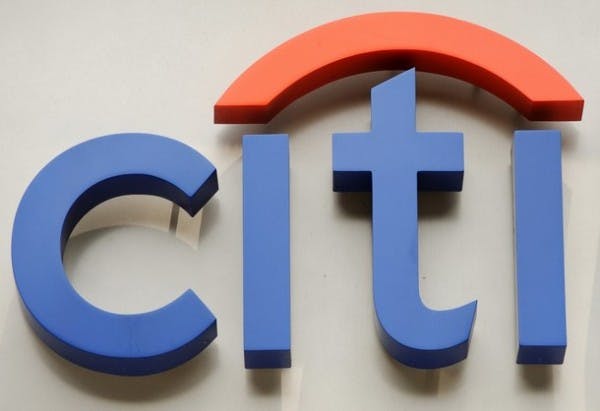U.S. stocks opened lower this morning, with the S&P 500 and the narrower, price-weighted Dow Jones Industrial Average down 0.47% each at 10:05 a.m. EDT.
Did just agree to be ransomed, or is the bank just wisely paying to move forward? Citigroup Inc. (NYSE:C) has broken with its peers in settling one of the last post-crisis lawsuits brought by the Federal Housing Finance Agency against 17 banks in 2011. The FHFA’s claim was that the banks had mis-sold mortgage-backed securities to Fannie Mae and Freddie Mac, the government-sponsored mortgage companies that were effectively nationalized in 2008 at the height of the credit crisis.

Admittedly, investors have already rerated the shares, which finished last year at a price-to-tangible-book-value multiple of 0.75. As of yesterday’s close, the stock was poised to trade at or above its tangible book value for the first time since the second quarter of 2011, with a multiple of 0.99. That increase has enabled Citigroup Inc. (NYSE:C) shares to outperform those of its two nearest peers and the S&P 500 year to date:
C Total Return Price data by YCharts.
How far does the stock have to run? In an interview published in Barron’s on May 18, legendary value investor Leon Cooperman outlined his thesis for the stock:
One of our holdings is Citigroup Inc. (NYSE:C), which trades at around $50, or roughly 0.9 times tangible book value. We believe the new management at Citi can more than double its return on tangible equity in the next two to three years by reducing the drag from the runoff of the Citi Holdings entity, which consists of businesses and portfolios that the company is exiting.
The installation of Michael Corbat as CEO, along with Michael O’Neill as chairman, was an important inflection point. O’Neill has proved that he can turn around franchises, most recently at Bank of Hawaii after the dot-com bubble burst. Citi can earn at least $5 a share this year, versus a consensus of $4.70, primarily through cost-cutting and reducing losses at Citi Holdings. By the end of 2014, through a combination of cost-cutting, buybacks, noncore-asset sales, and winding down runoff entities, Citi can be a $70 stock.
In a roaring bull market that offers fewer and fewer bargains, Citigroup Inc. (NYSE:C) still looks reasonably priced. The bank, long discarded by investors as a basket case, could continue to regain favor as investors become more familiar with its turnaround.
The article Citi Settles FHFA Suit. Here’s Why It’s Still a Buy originally appeared on Fool.com.
Fool contributor Alex Dumortier, CFA has no position in any stocks mentioned; you can follow him on LinkedIn. The Motley Fool owns shares of Citigroup.
Copyright © 1995 – 2013 The Motley Fool, LLC. All rights reserved. The Motley Fool has a disclosure policy.
